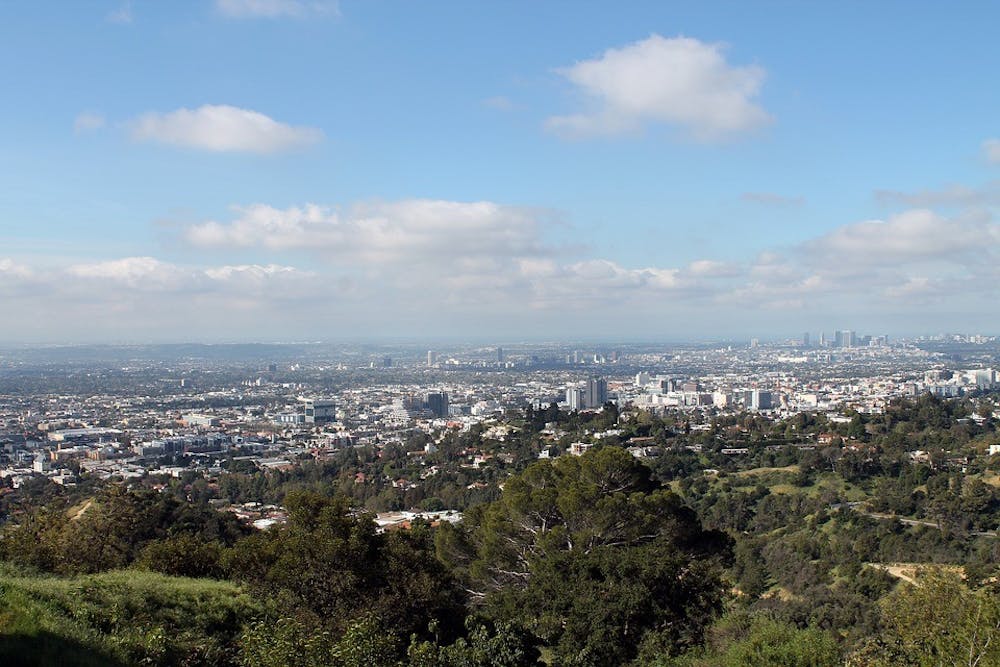Every four years, presidential candidates descend upon Iowa, set up camp and barnstorm though the state for roughly a year. In 1976, Iowans helped propel a relatively unknown Southern governor named Jimmy Carter to the Democratic nomination.
Ever since, candidates tour most, if not all of Iowa’s 99 counties in hopes of capturing the attention of voters there. The candidates, many of whom are based out of Washington, D.C., make a point of visiting the Iowa State Fair, hold town hall meetings in high school gyms and try to capture an important endorsement from The Des Moines Register.
But it’s time for this tradition to end. It’s time for the Democratic Party to make a change. It’s time for California to be the first in the nation.
Divorces are difficult, especially after 43 years of being in the political limelight. Unfortunately, Iowa no longer has a good case for why it should cast the first ballots for Democrats.
Iowa is 90.7 percent white. The demographic makeup of Iowa simply does not align with the demographics of the Democratic Party. Currently, black and Latino voters have an under-represented voice until Nevada and South Carolina hold their respective caucus and primary.
Rather than homogeneous Iowa, the perfect fit for holding the nation’s first Democratic primary is California, with its 39 million residents.
Arguments can be lobbied against the Golden State. It’s not the heartland. It’s too big. Californians won’t take their job as the first voters as seriously as the responsible Iowans.
However, these arguments do not hold up. California is America. California is 72.1 percent white, 39.3 percent Latino, 15.3 percent Asian, and 6.5 percent black. These demographics mirror the modern Democratic Party.
Whereas Iowa is quite rural, California is diversified. It is a microcosm of America. The country knows about sprawling megalopolises such as Los Angeles, San Francisco and San Diego. What might surprise some Americans is California’s farming industry. Without California, Americans would go without much of the fruits and vegetables that they love to eat.
California has more delegates than any other state, and yet voters rarely if ever see a candidate in person, save for Hollywood executives that hold fundraisers. The state’s diverse economy and population would prevent candidates from relying on the same tired stump speeches. It is a state where aerospace, entertainment, farming and the service industries employ millions of its residents. Candidates would need to keep on their toes to address the needs of these vastly different voters.
Global warming could take center stage in a state with 840 miles of eroding coastline and 33 million acres of dry forest that is ever more prone to wildfires.
Comprehensive immigration reform could top the agenda in a state that employs millions of Hispanic and Latino immigrants.
By giving California the honor of holding the first primary in the nation, Democrats will likely select a far more diverse group of candidates. Kamala Harris is one example of a minority candidate that likely would have gained much-needed attention from voters and donors alike.
California is America. With its beaches, mountains, cities, farmland and deserts, California is representative of the rich diversity of the American landscape.
California is a leader. Whether it’s cutting carbon emissions or reducing single-use plastics, the state doesn’t sit back and wait for the federal government to act.
There will be arguments lobbied against California holding the first primary. The media market is expensive there. This will force candidates to raise large sums of money to compete. However, rather than spending millions of dollars in a state with few delegates (and few electoral votes), candidates will spend on the biggest prize of all.
The arguments against California do not outweigh the benefits of competing for the votes of an economically and ethnically diverse population.
Even before Iowa’s ill-fated 2020 caucus, there were grumbles in the party about changing course. The time has come for the Democratic Party to admit what the party’s rank and file have known for years — Iowa does not represent the party successfully, and therefore doesn’t produce the strongest candidates for the general election.
There are other states with a diverse population and with a mixture of urban and rural communities. Pennsylvania, Michigan and Texas are among them. None of these states have the unique qualifications that California possesses.
2024 will likely bring about a new Chairman of the Democratic Party. If they want to be known for something big and bold, he or she will heed the advice of past candidates and find a new state to begin the primary season. California will be there, ready to help select a candidate that has gone through the rigors of discussing issues that affect all Americans — black, brown, white, rural and urban.
Some might argue that California is out of touch with the rest of America. On the contrary, California represents the best of American diversity.
Jason Helfer is a graduate student from Mountain Top, Pa. studying Communications through the Advanced Academic Programs.





